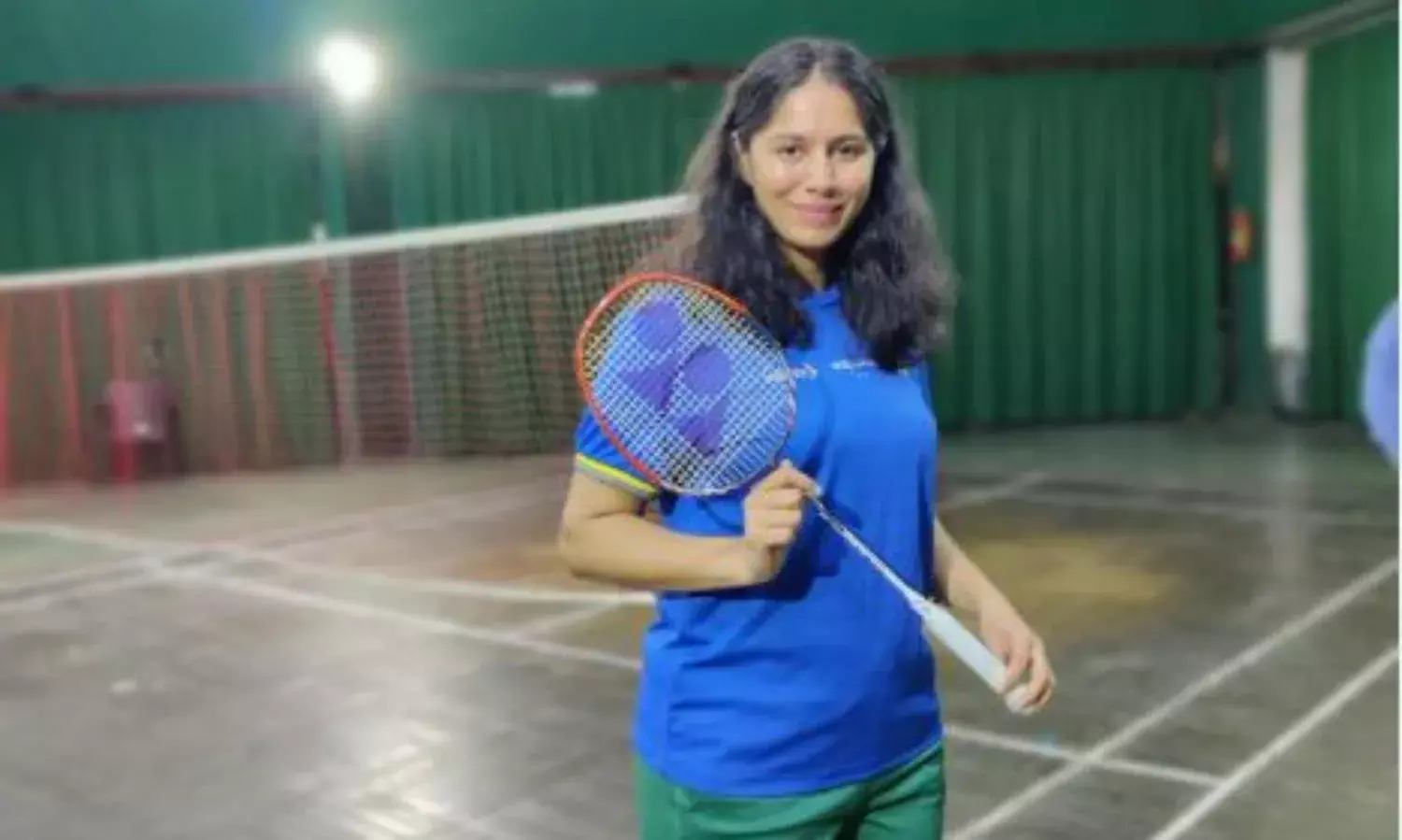In Conversation with Badminton Champion Manasi Joshi
An interview

On August 25, Manasi Joshi won her first ever international gold medal. From being 2-7 down in the opening set, Joshi ended up with a scoreline of 21-12, 21-7 defeating Parul Parmar to whom she had lost in all three encounters this year.
If at all one has to define Joshi, her classic drives, picture perfect smashes, a delicate drop shot and her unending hunger for wins would suffice to hail this sensational player, who has conquered the title with utmost authority, self-belief and passion.
In an interview with The Citizen, the 30-year-old player opens up about her badminton career, future, and a lot more.
You started playing badminton at the age of 8, when people are generally still figuring out the purpose of life. Was it your own choice to pick up the racket?
To be honest, I was put into many sports by my family. They wanted me and my siblings to be well equipped in every sport. In the initial years, I was getting coaching for football, badminton, basketball, and volleyball – but I ended up playing badminton more because I love the racket sport. Fitness and movement tests you at every second of the game. Also, the players and coaches at the academy I used to train at were extremely agile and always encouraged me.
You were a full time software engineer and after losing your leg in a road accident in Mumbai 2011, how did you make the journey into professional sports?
I started playing badminton for fitness and after the 2011 amputation I took up badminton as a hobby. I gave myself 2-3 years as I wanted to stay fit and not lose hope. It was really challenging in the initial days but honestly, a hobby turned into a profession.
Soon after, you weren’t selected for 2014 Para Asian Games?
When I wasn’t selected, I didn’t mind and continued to work on my approach to the game. It was my first opportunity to see other people with disability playing the sport, and I got even more motivated. I took that stint as an opportunity to play a national level tournament, and in December 2014 I ended up winning a silver medal.
Who has played the most important role in your memorable journey?
I would say, my family played the most important role: of making me play the sport and to keep on pushing me to reach higher echelons. As you know, I am a software professional, I could have just continued with my job and not at all played this game. I was doing well there too, but I didn’t do that.
I chose that which was different, difficult, and a little unexplored. All this was only possible because of them being the guiding force.
You defeated Parul Parmar 21-12, 21-7 after trailing 2-7 in the opening game. What were your thoughts at that stage?
Well, my coaches have already told me not to worry about the first few points going against you. They say, concentrate on understanding the court and how well you are able to hit. And once you start feeling comfortable about your own game, shift to your natural game.
I believe that finals are completely different than the rest of the games. So initially when I was making a few mistakes, I realised that this is not what I should be doing, and once you know what doesn’t need to be done, you eventually end up knowing what needs to be done.
I also wanted to try a few new shots I had learnt at the academy and made sure to implement them when they were required most.
Earlier you played Parul Parmar three times this year but lost on all three occasions. So was there any added pressure?
Of course! Parul has been playing para badminton since 2004 and she is a very senior player who understands the game well. She reads the game pretty well which is different for the ones who have just entered the sport. Adapting to the format takes a little more time. So yes, I was a little nervous before the start of the finals but this time I was prepared to face her. I did my revision well (laughs).
Tokyo 2020 will not feature singles, so how are you planning to shift back to doubles and what are your targets?
I am still discussing what can be the approach for doubles with my coaches, we are planning as to how to go about it. However, I am leaving it the coaches to decide. I will adapt to whatever they ask me to do.
Last one, a message you’d like to give to the young guns who wish to pursue sports?
I will say, we have just one life and do whatever you like to in life. Don’t focus on the results, just concentrate on the process. Be it sport, music, dance, education, culture, art – whatever inspires you – just give your heart and soul and work towards it. Don’t let your gender, sexuality, or anything define you to do things that you really love to do.



